“When it comes to human rights, a state cannot limit itself to only protecting the rights of certain minorities. A state must strive to protect the human rights of all people and approach all of them in the same way. Also the rights of the majority and regular people – the right to life and safety, which are no less important than the freedom of expression, assembly or religion and socio-economic rights.“ 
1.I panel: Are universal human rights even possible in different cultures?
The idea of universal human rights states that all people must have equal rights, independent of their cultural space. According to cultural relativism, the principle values in different environments are the same, but rights must still proceed from the specificities of the particular region, not global rules. These two opposing concepts form the central questions of the human rights discourse: is it possible to achieve universal human rights or is it utopia? Read more... moderator Hille Hanso
Toomas Kuusing. Herder preaches equality to pigs. 2019, linocut.
“IDENTITY is a bridge between people and culture. Identity may change or shift, but it cannot disappear without losing your connection to culture. The fight against identity always means enforcement of some other identity.“
2.II panel: What challenges does climate change pose to human rights?
Climate change poses a threat to the natural environment and human societies. The predicted climate change has a negative impact on billions of people and ecosystems, invoking unexpected events – including extreme weather conditions and natural disasters, floods, heat waves, desertification and water shortage. The changes taking place also trigger forced migration, because many areas are becoming uninhabitable. We know that climate change threatens the regular understanding of human rights in the entire world, including the right to life, water, food, health, abode, culture and development. But how to cope with climate change? There is no single answer and simple solutions to these questions, but we must admit that coping with climate change is one of the greatest challenges of the current era. Read more... moderator Toomas Tiivel
Toomas Kuusing. Poor things freeze on treetops. 2018, linocut.
“People belong under the laws of nature until they become part of society. Then, they alienate from nature and exit its laws. After this, people can no longer be considered beings belonging to the natural balance system — they stand outside it. People acquire the power to change (ruin) the balance of nature, which is why nature is better balanced the less people intervene in it.“
3.III panel: Will technological advancement run down human rights?
The technological advances which have taken place in the last decades have considerably changed the classical understanding of human rights. Earlier, the focus was on citizen and political and socio-economic rights, but nowadays, we must take into account artificial intelligence, digital data processing and other areas of technology. Ideas that seemed utopian are becoming a reality, which also means new directions and questions in human rights. How to guarantee the protection of human rights in an increasingly powerful digital world? Read more... moderator Urve Eslas
Toomas Kuusing. Important people investigating fly feces. 2018, linocut.
“Development in INFORMATION TECHNOLOGY inevitably clashes with DEMOCRACY, because democracy is not based on rationality nor facts. IT however, is based on passionless mathematics. Compared to democracy, enlightened authoritarianism and dynamic aristocracy correspond better to the information society model, because in information society, equal treatment and equality based society are a relict of the industrial society. People are not equal in their capacities, strength, character nor other characteristics. A computer (machine) understands that.“
4.IV panel: What will happen to human rights with the onslaught of populism?
Populism and demagogy are words which emerge in current political theory more and more frequently, used to describe state regimes and political methods. Both phenomena are considered some of the biggest threats to 21 century human rights. However, populism and demagogy are not just used to oppose human rights, but these techniques can also be found in human rights discourse. Inevitably, human rights often fall victim to political conflicts and they are used to achieve personal or national objectives. We must make sure that human rights discourse remains free of demagogical methods and the evils of populism. Read more... moderator Ülle Madise
Toomas Kuusing. We killed a big fish. 2015, linocut.
“The rise of EXTREMISM is the onslaught of STUPIDITY. The main sufferers in clashes of the EXTREMES are regular people, who have nothing to do with it, not extremists themselves, who remain puppeteers behind the scenes. Generally speaking, we can say that POPULISM is anti-state. It is definitely anti-people.“
-
 2018Conflicts of ValuesIn 2018, the panels discussed the topic of small countries as equal partners, whether human rights have a future, how much algorithms affect human rights and whether Russia has a future.
2018Conflicts of ValuesIn 2018, the panels discussed the topic of small countries as equal partners, whether human rights have a future, how much algorithms affect human rights and whether Russia has a future. -
 2017Are Human Rights in Freefall?The conference will address a number of today’s most important topics – terrorism, technological development, security, small states in a globalising world, culture and international cooperation – through a human rights perspective.
2017Are Human Rights in Freefall?The conference will address a number of today’s most important topics – terrorism, technological development, security, small states in a globalising world, culture and international cooperation – through a human rights perspective. -
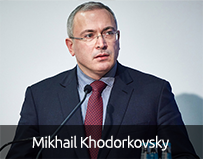 2016Black and White Values in a Polarizing WorldThe topics under discussion this year include a survey of public opinion on human rights among the Estonian citizens and foreigners living in Estonia, questions related to collective human rights and propaganda that have changed people’s understanding of basic rights.
2016Black and White Values in a Polarizing WorldThe topics under discussion this year include a survey of public opinion on human rights among the Estonian citizens and foreigners living in Estonia, questions related to collective human rights and propaganda that have changed people’s understanding of basic rights. -
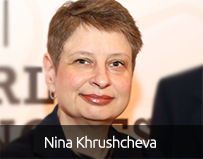 2015Human Rights in Changing TimesThe topics under discussion this year include case studies from the European Court of Human Rights, linguistic human rights, as well as the views of various generations of Russians today regarding their society.
2015Human Rights in Changing TimesThe topics under discussion this year include case studies from the European Court of Human Rights, linguistic human rights, as well as the views of various generations of Russians today regarding their society. -
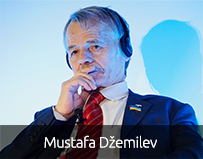 2014Dignity in the context of human rightsThis year the conference agenda included three keynotes and a panel discussion following each one: 1) guarantees under international law; 2) rights of native peoples; guarantees under international law; 3) the situation and future in Russia and Ukraine and human rights.
2014Dignity in the context of human rightsThis year the conference agenda included three keynotes and a panel discussion following each one: 1) guarantees under international law; 2) rights of native peoples; guarantees under international law; 3) the situation and future in Russia and Ukraine and human rights. -
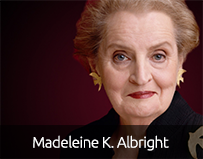 2013Human Rights and the Freedom to AssociationThis year’s annual conference, titled “Human Rights and the Freedom of Association” will analyse the global developments in human rights that have taken place in 2013.
2013Human Rights and the Freedom to AssociationThis year’s annual conference, titled “Human Rights and the Freedom of Association” will analyse the global developments in human rights that have taken place in 2013. -
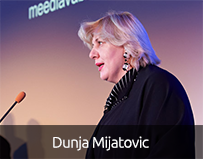 2012New Challenges of Human RightsOur conference examined human rights where the internet and the concept of security have altered dramatically our 20th century understanding of the core issues of human rights.
2012New Challenges of Human RightsOur conference examined human rights where the internet and the concept of security have altered dramatically our 20th century understanding of the core issues of human rights. -
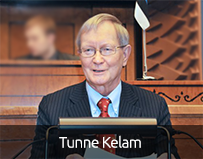 2011Dedicated to the 20th anniversary of restoration of independence of Estonia
2011Dedicated to the 20th anniversary of restoration of independence of Estonia

